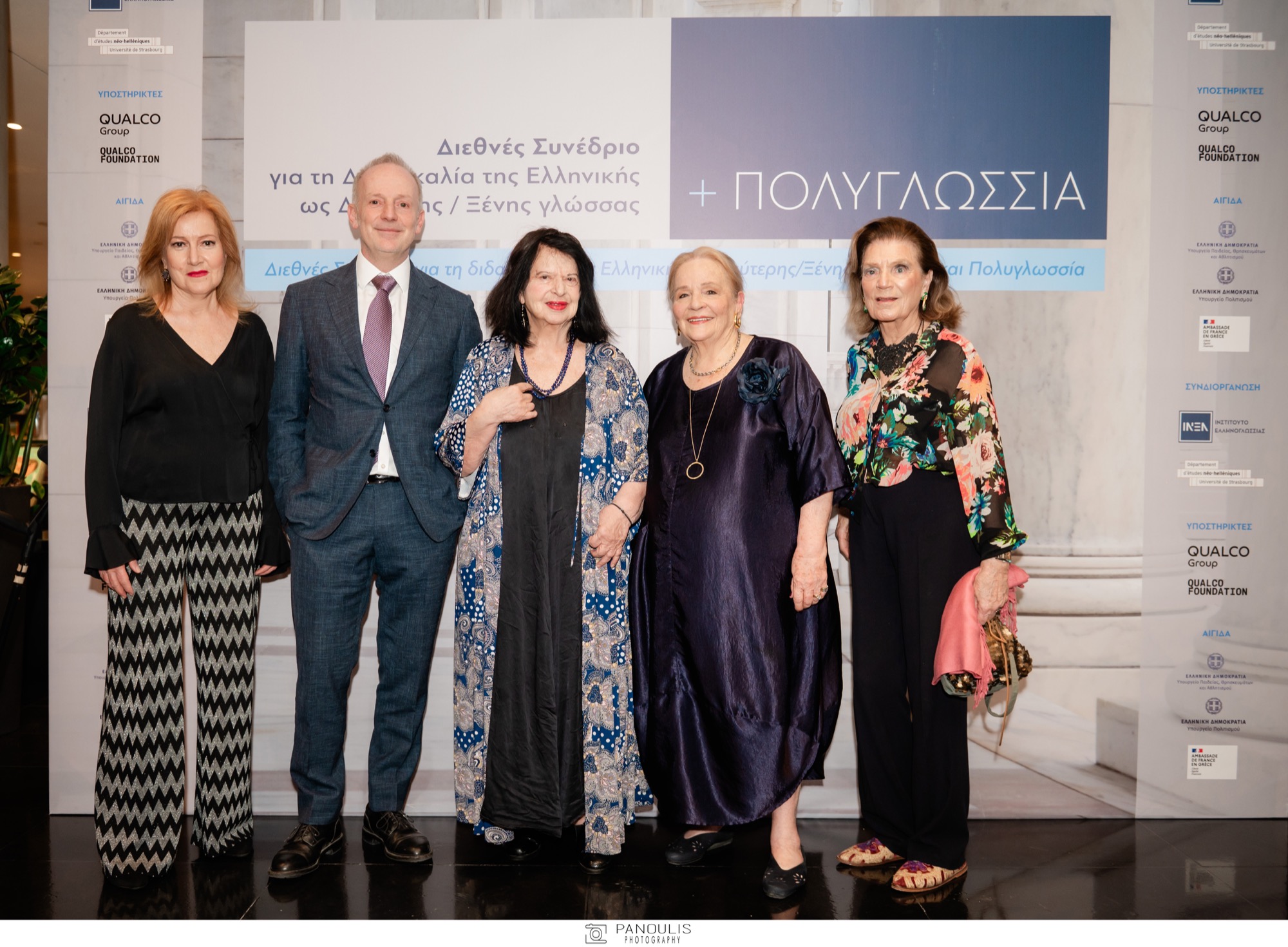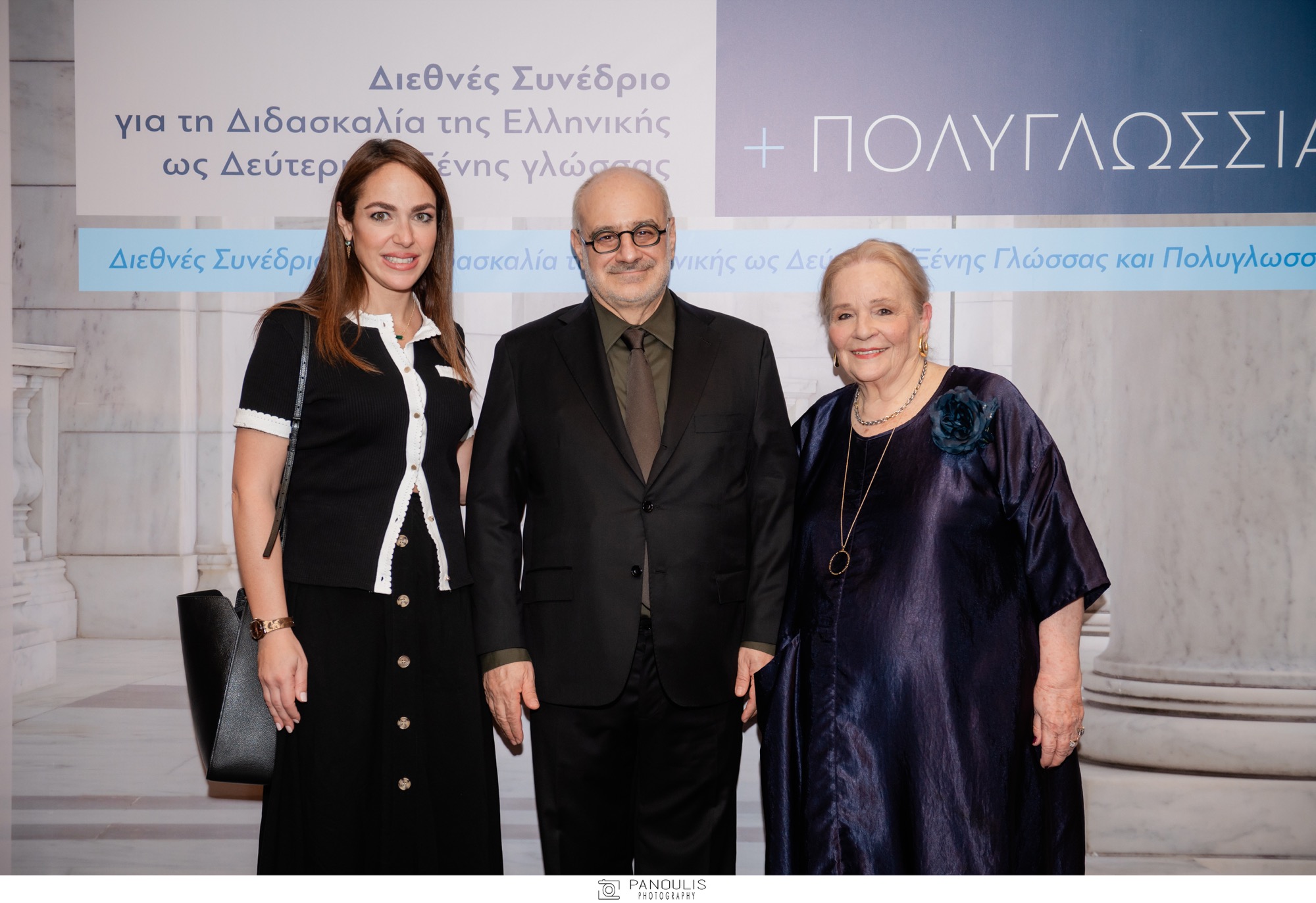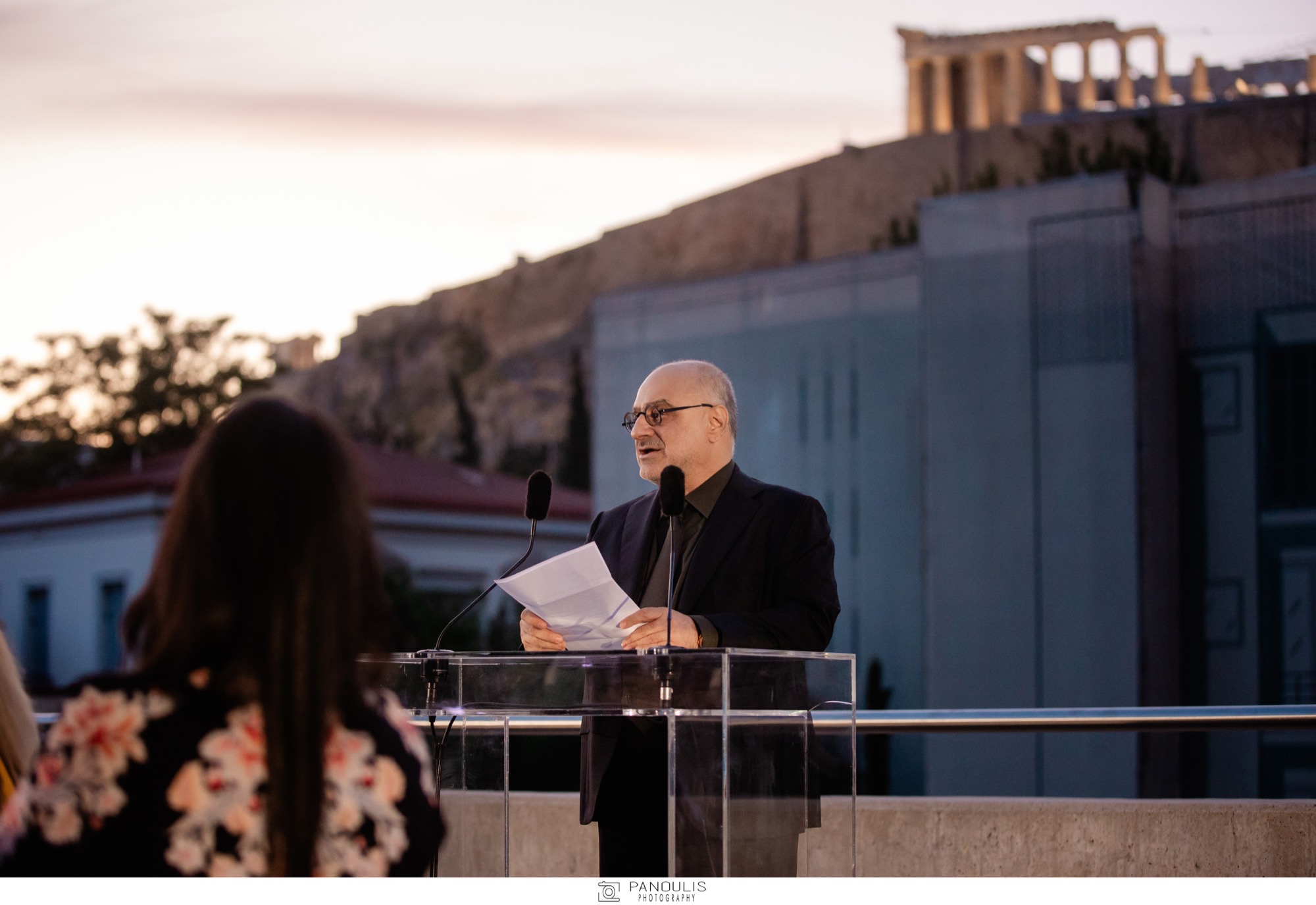With an event of high symbolic value, beneath the Sacred Rock of the Acropolis, the Qualco Foundation officially launched the Greek Language Institute (INEL), for which it is a founding supporter along with the Qualco Group. The event took place on Wednesday, June 4th, at the Acropolis Museum, the most fitting setting for showcasing INEL’s vision.
The Greek Language Institute (INEL) was established with the mission to preserve, promote, and advance the Greek language and culture worldwide, through advanced international practices. These include, for example, supporting the teaching of Modern Greek within the Greek diaspora communities and promoting it as a second/foreign language. Evangelia Georgantzi serves as the president of INEL, bringing decades of dedicated service to the teaching and promotion of the Greek language.
The event was attended by representatives from the political leadership and business community, who honored this important initiative with their presence.
The Minister of Social Cohesion and Family, Domna Michailidou, praised the creation of INEL, stating: “The Greek language is a tool of social cohesion. Investing in our language acts as a binding agent in our society—within Greece and beyond—among Greeks and among third-country nationals. Through learning Greek, we build unity. This is how we see the Greek language: as an essential tool of social cohesion, not merely a necessity, but a responsibility of care from our side.”

In her welcome speech, Evangelia Georgantzi, President of INEL, said: “Today we collectively honor the Greek language, recognizing its enduring value and strength in global linguistic culture. The Greek Language Institute promises to add another building block to one of Greece’s greatest assets—its language. We will work with consistency and respect to serve the Greek language, both for its preservation among the younger generations of the Greek diaspora and for its broader global dissemination.”
In his address, Orestis Tsakalotos, Chairman of both Qualco Group and the Qualco Foundation, emphasized: “At Qualco Group, and through the work of the Qualco Foundation, we deeply believe in the power of knowledge, preservation of cultural heritage and, of course, language — this living organism that carries memory, identity, and vision. Supporting new initiatives like INEL is at the heart of our philosophy: empowering efforts that shape the future without losing sight of the roots of the past.”
The evening’s artistic program featured acclaimed pianist Dora Bakopoulou and performer Elli Paspala, who stated: “I am the child of immigrants and the fact that I speak Greek is thanks to people like you and, of course, to my family. I just wanted to say a big thank you and wish great success to your conference.”

The event marked the official launch of INEL’s operation, which began with its first major initiative: the International Conference on Teaching Greek as a Second/Foreign Language and Multilingualism. The conference was held under the auspices of the Ministry of Education, Religious Affairs and Sports, the Ministry of Culture, and the French Embassy in Greece. It took place on June 5-6 at the Intercontinental Hotel, bringing together 41 speakers from 6 Greek and 17 international universities institutions, along with educators and Greek Diaspora representatives from around the world. The scientific coordination of the conference was overseen by the University of Strasbourg (Department of Modern Greek Studies) and the Greek Language Institute. The Organizing Committee included Irini Tsamadou-Jacoberger (Professor Modern Greek Studies, University of Strasbourg), Maria Zerva (Associate Professor and Head of the Department of Modern Greek Studies, University of Strasbourg) and Evangelia Georgantzi (Philologist and President of INEL).
INEL aspires to become a permanent reference point for the Greek language and culture, acting as a bridge between Greece and the global Greek-speaking community, as well as all learners of Greek around the world. Through such initiatives, INEL aims to significantly contribute to the global promotion of the Greek language and strengthen its presence in an evolving linguistic landscape.

